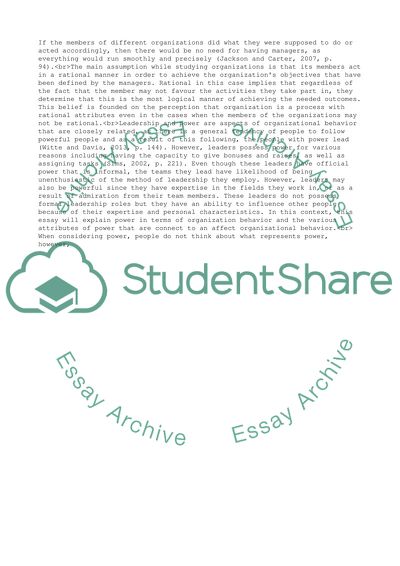Cite this document
(Power in Organizational Behavior Essay Example | Topics and Well Written Essays - 2500 words - 1, n.d.)
Power in Organizational Behavior Essay Example | Topics and Well Written Essays - 2500 words - 1. https://studentshare.org/management/1856164-no-title
Power in Organizational Behavior Essay Example | Topics and Well Written Essays - 2500 words - 1. https://studentshare.org/management/1856164-no-title
(Power in Organizational Behavior Essay Example | Topics and Well Written Essays - 2500 Words - 1)
Power in Organizational Behavior Essay Example | Topics and Well Written Essays - 2500 Words - 1. https://studentshare.org/management/1856164-no-title.
Power in Organizational Behavior Essay Example | Topics and Well Written Essays - 2500 Words - 1. https://studentshare.org/management/1856164-no-title.
“Power in Organizational Behavior Essay Example | Topics and Well Written Essays - 2500 Words - 1”. https://studentshare.org/management/1856164-no-title.


